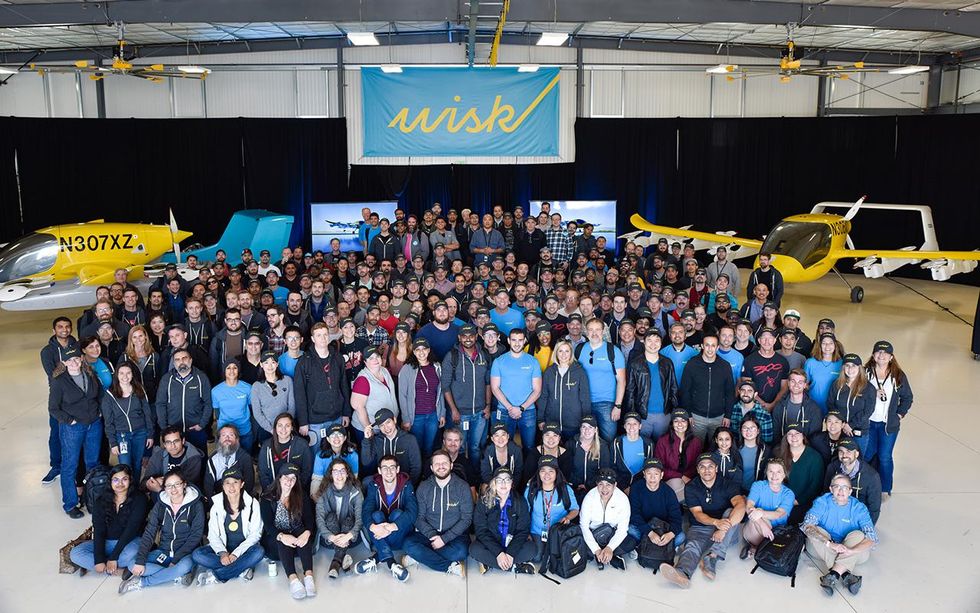Air Taxis Could Arrive in Long Beach in the Next Decade
Samson Amore is a reporter for dot.LA. He holds a degree in journalism from Emerson College. Send tips or pitches to samsonamore@dot.la and find him on Twitter @Samsonamore.

Sign up for dot.LA’s daily newsletter for the latest news on Southern California’s tech, startup and venture capital scene.
The city of Long Beach is partnering with a startup developing electric, self-flying aircraft to explore the possibility of deploying air taxis that would bolster the city’s transit infrastructure.
Silicon Valley-based Wisk Aero and the Long Beach Economic Partnership have launched a working group involving local businesses, government officials and community leaders to examine the viability of air taxis in Long Beach. The working group is also partnering with California State University, Long Beach’s Office of Economic Research on an economic impact study that is slated for completion later this year.
Even if all goes to plan, it would likely take up to 10 years before Wisk Aero’s air taxis are up and running in Los Angeles County, Wisk spokesperson Chris Brown told dot.LA. Developing an airborne transportation system from scratch is a logistical challenge that would require infrastructure like vertiports, while there are also financial and city planning obstacles to overcome.

Wisk claims its technology, however, already works. The Mountain View-based startup has completed 1,500 test flights of its unmanned electric aircraft (though each test flight is supervised by an air traffic controller) and is developing larger craft designed to carry more passengers. Initially a pet project of Google co-founder Larry Page, Wisk launched in 2019 as a joint venture between Page’s air mobility company Kitty Hawk and aerospace giant Boeing. Last month, Boeing invested an additional $450 million into the startup.
While Wisk would not disclose its total funding to date, Brown noted the steep costs associated with the venture. “The standard accepted stats around what it takes to bring a new aircraft to market is 10 years, $2 billion, and 10,000 people—and we’re going on 12 years now,” he said. Wisk also has yet to find and develop a large-scale manufacturing site, though Brown said such a facility will be located in the United States.
L.A. County is no stranger to short-range air travel for the wealthy, who have long used private helicopters and chartered planes to ferry around the region. While public air taxis would, in theory, help alleviate Long Beach’s congested road traffic, one question sure to arise during the working group process is whether a ride on Wisk’s aircraft would be affordable to the public.
“The target of the [air taxi] industry right now is to be about [the price of an] Uber Black, or a couple of times [the price of an] UberX,” according to Emilien Marchand, Wisk’s public policy lead and director of ecosystem partnerships.
Marchand said Wisk will likely go to market later than competitors like Joby Aviation, a Santa Cruz-based startup valued at $4.5 billion after it went public last year. Joby is targeting a 2024 launch for its electric air taxi fleet.
“We fully expect to be building this ecosystem with our future competitors,” Marchand said. “We've absolutely recognized that we will not be the first to market, and that's fine—but we will be first with an autonomous vehicle.”
Samson Amore is a reporter for dot.LA. He holds a degree in journalism from Emerson College. Send tips or pitches to samsonamore@dot.la and find him on Twitter @Samsonamore.



 Image Source: Revel
Image Source: Revel
